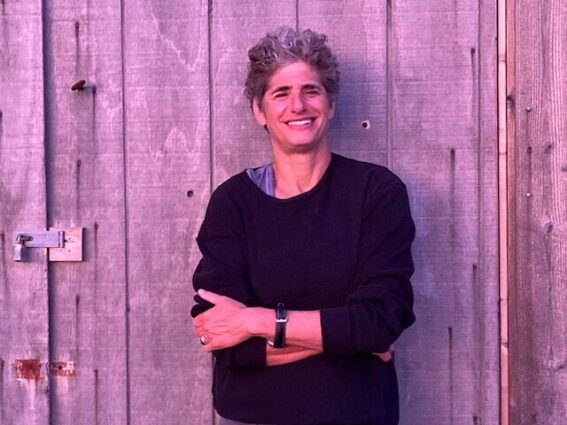Sheila Margaret Motton Book Prize Honorable Mention, selected by the NEPC Board
Andrea Cohen is the author of eight poetry collections, including, most recently, The Sorrow Apartments.Her poems have appeared in The New Yorker, The New York Review of Books, The Threepenny Review, The Atlantic, and elsewhere. The recipient of a Guggenheim Fellowship and several fellowships at MacDowell, she directs the Blacksmith House Poetry Series and currently teaches at Boston University.
Selections from The Sorrow Apartments Springfield Get a room, the dude in the blue Camaro yells. He’s made of rage and tinted glass, and we’re made of desire and what if and what I want to say is, Dude, we have a room, but we got hungry. Every three days we have to eat or get mimosas or get yelled at by you. Get a room, he yells again, maybe because he thinks we’re hard of hearing, or because it pains him to see our affection. Maybe he thinks: what a waste––two women who could have loved him instead. Instead, we get sandwiches to go and go back to the room we call our room, which could be in any motel near any off-ramp in any Springfield, with its anonymous white walls and towels, with the empty drawers you love, and the flat-screen TV that seems to keep getting bigger and flatter. And since we’re taking inventory, let’s don’t forget the bedside Bible and the red pen tucked inside, as if we might be inspired to make corrections. And come to think of it, I would like to make some changes in how things turn out, how they turn on a dime, or over time crumble. Instead, I listen to you read aloud from the pamphlets you found in the lobby. Fun fact: basketball was invented in Springfield, Mass., as was vulcanized rubber. The man who wrote “The Cat in the Hat” was born here, and perhaps most importantly, this is the birthplace of interchangeable parts––or at least where they first caught on. Think assembly lines, think mass production. I’m thinking about the fun fact of you, about how much I love origin myths, about how people aren’t things. We can’t be vulcanized, we can’t, like faulty chains, be replaced. And I'm thinking about that guy in the Camaro, how what really drives him is loneliness, how we see iterations of him in all the Springfields we find ourselves in, because that’s your fantasy: you and me in every Springfield in America, in Nebraska and Ohio and North Dakota, in townships in Jersey and Michigan, always in a motel bar, pretending we’ve never met. And after a while, after Idaho and Maine, after Springfields in Kentucky and East Texas, the myth rings true: it's old hat, old cat in the hat: the white walls and small bars of soap, the falling asleep in the middle of a life, the waking to one place named for another––not a fun fact exactly, just what the Russian novelist not immune to Springfields knew about unhappiness Refusal to Mourn In lieu of flowers, send him back. Something Something went wrong. That’s what the machine says when I call to say my paper didn’t arrive. Machines are trained by people, so they’re smart, they know a thing or fifty trillion. Did you miss your Sunday delivery? it asks. I did, I say. I miss everything, I say, because it’s a machine and it has to listen, or at least it has to not hang up without trying to understand why I called, which means trying to correct what went wrong. Let me see if I got this right, the voice says, you missed your Sunday paper? Yes, I say, but also I miss my childhood and fairy tales, like Eden. I miss sweet Rob Roys with strangers, I miss fabric softener, and soft lighting. I’m sorry, the machine says. I’m having trouble understanding. Did you miss today’s paper? Yes, I say, but that’s not the half of it. Sometimes I just feel like half of me, and even that feels like too much. I’m having trouble understanding, the machine repeats, its syllables halted, as if trying to mimic an empath. I’m having trouble understanding too, I say. I used to understand so much: photosynthesis, the human heart, I’d even memorized the Krebs cycle, but now all I remember is lifting the golden coil of the kitchen phone to maneuver under my mother’s conversations. It was like lifting the horizon. There’s a silence, and the machine asks: Are you still there? In a few words, please describe your issue. Where do I begin being a minimalist? Time, I say, I’ve got a problem with that. Also, loss, and attachment. That’s pretty much it, and the news in its sky- blue sleeve is meant to be a distraction, isn’t it? I ask. More silence, and then: You miss your mother? a voice asks. It’s a human voice. Me too, she says.

